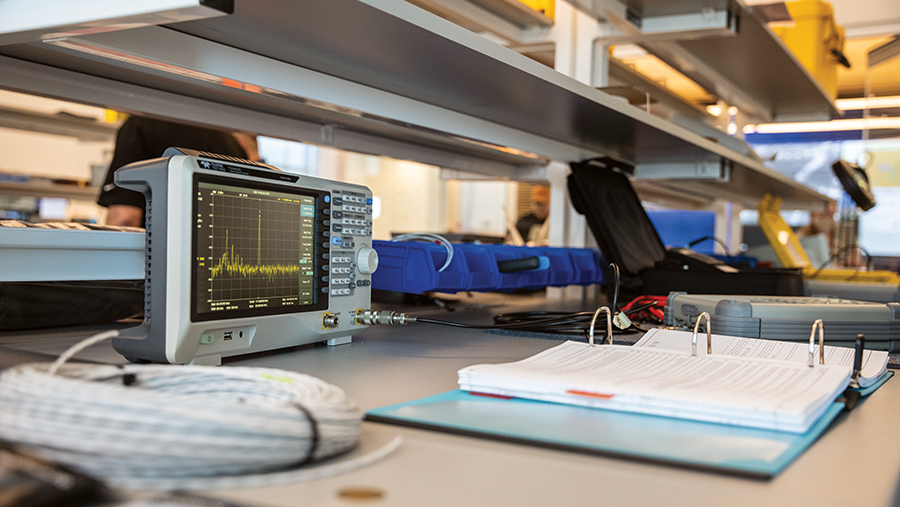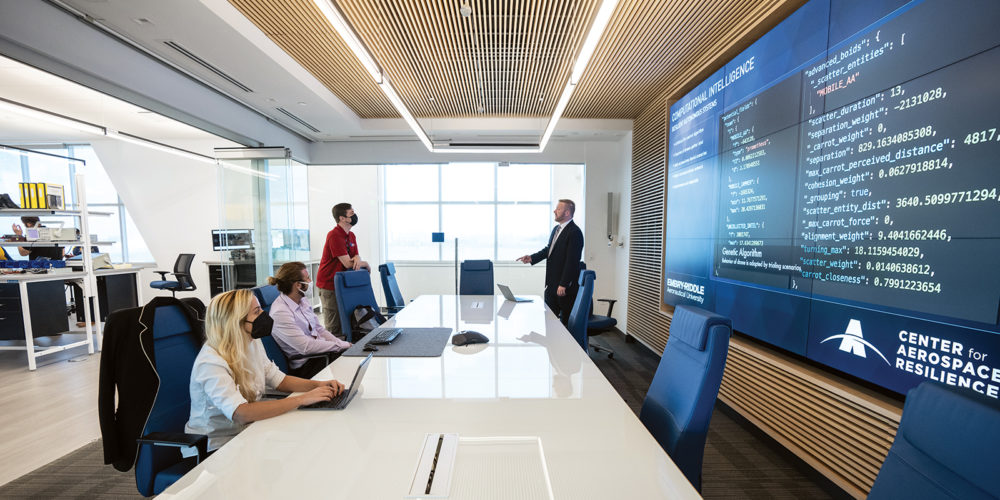When Dan Diessner was senior manager for product cybersecurity at The Boeing Company, he noticed that Embry-Riddle graduates stood out.
“I started recruiting out of Embry-Riddle because I recognized they had tremendous abilities in computer engineering and aviation,” he says.
He knew such graduates were a rare and valuable find. That’s why, after retiring from Boeing in December 2020, he jumped at the chance to join Embry-Riddle’s new Center for Aerospace Resilience, housed in the MicaPlex at the Embry-Riddle Research Park.
“People here understand aviation and are passionate about the industry. This is the perfect place to grow core aerospace research,” says Diessner, who now serves as director of the Center for Aerospace Resilience (CAR) and is a Research Faculty Fellow.
The first center of its kind in academia to focus on cybersecurity and data analytics applications within the context of aerospace, CAR was established in 2020 to bring together the university’s experts in artificial intelligence, cybersecurity, data science, and software and hardware systems to develop solutions to advance the aerospace domain, develop innovative solutions and address multiple challenges facing aero systems and infrastructure.
“People here understand aviation and are passionate about the industry. This is the perfect place to grow core aerospace research.”
— Dan Diessner
“As aerospace systems and their capabilities evolve from isolated and simple to the interconnected and complex technologies of today, we have opened the door to more potential physical, cyber and human risks,” says David Hopfe, Embry-Riddle’s research development coordinator. “It was this catalyst and the realization that the world needs confidence in the security and resilience of the global aerospace system that led to the creation of the Center for Aerospace Resilience to meet the needs of future aerospace research and development.”
Hopfe points to the need to protect the growing and complex system of suppliers, manufacturers, operations centers, maintenance centers, satellites, e-enabled aircraft and state-of-the-art spacecraft, which requires significant collaboration from government, industry and academia.
“With the establishment of CAR, Embry-Riddle is facilitating the growth of the global air transportation system and addressing the existing insecurities of the aerospace industry while analyzing the threats and vulnerabilities of the future and creating solutions to mitigate those risks,” Hopfe says.
As a university-wide center, CAR’s research includes all of Embry-Riddle’s campuses, students and faculty.
The center is also partnering with corporations and government agencies to respond to industry needs with new solutions, says Diessner, whose 34 years of experience working in the aerospace industry is helping him make those important connections. While at Boeing, he led the Boeing Commercial Airplanes Product Cybersecurity and Airplane Software Integration organization. He also supported the aviation cybersecurity industry by serving on numerous boards, including as Boeing Commercial Airplanes’ representative to the International Civil Aviation Organization for cybersecurity and Embry-Riddle’s Industry Advisory Board for Cybersecurity.

“I bring all those contacts and needs from the business side and marry them to Embry-Riddle’s center,” says Diessner.
CAR also benefits Embry-Riddle students with valuable hands-on research experiences that can ultimately lead to top job opportunities and scholarships. Embry-Riddle was selected by the National Science Foundation in January to receive $3,875,000 that will be awarded in scholarships to students in cybersecurity programs over the next five years.
“Embry-Riddle has this unique capability in the safety-critical domain of aviation and aerospace cybersecurity,” said Dr. Radu Babiceanu, professor in the Department of Electrical Engineering and Computer Science and principal investigator on the project. “Our students have the opportunity to really make a significant difference in the cybersecurity of transportation, as well as of satellite data and radar systems.”
The aviation and aerospace industry, which involves transporting millions of people safely every day, is an especially rewarding and meaningful area to apply cybersecurity and data analytics, Diessner says.
“Cybersecurity is a big part of making the aerospace system safer and resilient,” he says. “And with this great passion for aerospace research at Embry-Riddle, it’s the perfect place to have this center.”
